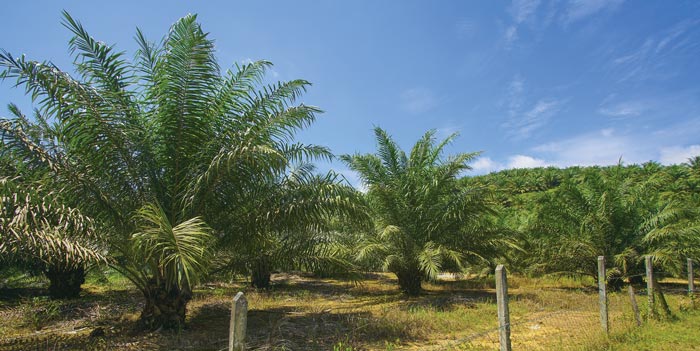



The world’s population stands at 7.6 billion today and is expected to reach nine billion by 2050. At the same time, the availability of arable land remains roughly the same. In fact, arable land is becoming scarcer, relative to the number of people who have to be fed.
According to UN figures, an additional 2.7-4.9 million ha of cropland will be required every year to feed the world’s population. But climate change, urban development and rural population migration affect agriculture directly.
Every year, between one million and two million ha of land become unsuitable for cultivation due to land degradation. Efforts to rehabilitate such land are extremely expensive. Therefore, more innovative and efficient agricultural land use policies are needed to step up food supply.
The first fact to recognise when considering food security is that the world is not homogeneous. Global food production is not evenly distributed among all countries.
Countries with a conducive climate and human capacity have surplus food production and will not encounter food security issues. Those that are less well-endowed will encounter food security issues. Very often, they are countries with large populations. This, clearly, is a potential cause of significant economic and social instability.
By 2050, an additional 35 million tonnes of oils and fats will be needed every year around the world. This posts a major challenge in that large areas of land will be required to meet the additional demand.
In order to produce 35 million tonnes of oils and fats, 88 million ha of land would be required for soybean cultivation or 58 million ha for sunflower. In contrast, only nine million ha of oil palm would be needed to produce the same volume of food – the actual area may be smaller due to productivity improvements over time.
Realising this, the UN Food and Agriculture Organisation has recognised the importance of planting oil palm for food security, especially in developing countries. Although oil palm occupies only 0.3% of total agricultural land, the crop contributes more than 30% of the world’s supply of oils and fats.
Sustainability certification
World-leading efficiency on its own has not been sufficient to lead palm oil into the good graces of decision-makers. Consistent negative campaigns about palm oil’s alleged environmental impact have damaged its image and forced the industry to respond to prove its sustainability credentials.
The Roundtable on Sustainable Palm Oil (RSPO) is today the most widely accepted sustainability certification scheme for palm oil, particularly for use in food and chemicals. Indeed, the RSPO has made significant progress and impact in promoting the production, supply and use of sustainable palm oil.
However, there are signs that the RSPO is increasingly alienating oil palm growers; they have become disillusioned by the continuously shifting sustainability criteria or application of these during audits.

Let’s look at the statistics of membership. In 2008, four years after the RSPO’s formation, member-growers made up 19.1% of membership; 10 years later, a mere 4.4% of the total membership comprised member-growers. These statistics showing a gross under-representation of growers should be a wake-up call for the RSPO and the advocates for sustainable palm oil.
Growers are the ones who bear the brunt of the hard work, undergoing regular audits involving almost 100 criteria. They form the source of the palm oil supply chain on which the very existence of the RSPO depends. If the goose that lays the golden eggs disappears or shrinks substantially, it would be meaningless for the remaining members – food companies, retailers and NGOs among other stakeholders – to talk about promoting the use of sustainable palm oil.
The RSPO’s core objective is to ‘promote’ the production, supply and use of sustainable palm oil. ‘Promote’ means ‘encourage’ and has an underlying tone of voluntary effort and incentives.
However, membership for growers has turned into an avalanche of complaints against their production practices, and hardly any complaint against other member-groups. With this – coupled with the less than 50% uptake of the certified production volume as well as the fast-declining RSPO premium – it is not surprising that expansion of the growers’ membership is so slow and that under-representation of member-growers is so stark.
Due to the stringent RSPO criteria and significant certification costs, there is a real need for other schemes that are cheaper, less complex and more broad-based. The Malaysian Sustainable Palm Oil standard, for example, is a much-welcomed certification scheme which is backed by the government and can be adopted by a much wider spectrum of growers, including smallholders.
Negative activism
The era of the Internet and social media has proved a boon to environmental NGOs from western countries, as they are able to reach out to netizens around the world and garner a strong following to promote their causes. Palm oil has become a favourite target of these NGOs.
Armed with academic knowledge gained from western institutions, as well as information extracted from studies based on dubious science, activists who are mostly in their 20s and 30s have a tendency to exert their opinions on oil palm growers who have spent many years practising their trade.
The NGOs are relatively small in size, with manpower as low as five for the smallest to perhaps a few hundred for the bigger ones. However, with clever use of social media and shrewd propaganda tactics, they are able to sway consumer perception. They also dictate to oil palm grower communities, which total several million people, on how environmental conservation should be carried out in less developed countries.
It is acknowledged that activist groups play an important role by providing alternative views and serving as a check-and-balance on matters of interest. However, in many instances, their approach to resolving issues could be less confrontational, more sympathetic and more collaborative. The fact is that growers are the ones who do the tough job of ensuring that oil palm is grown in an economically, socially and environmentally sustainable manner.

The campaigns by activist groups in restricting oil palm planting have been effective, as seen from the much slower expansion of the planted area over the last few years. The Indonesian government has extended a moratorium on approving new land for oil palm planting. Recently, the Malaysian government also announced a restriction on oil palm expansion.
These are good short-term measures that allow proper environmental protection to be implemented effectively on the ground, and to moderate the growth of palm oil supply in the global vegetable oil market.
However, a proper balance should be struck to avoid other socio-economic problems such as food insecurity, food price inflation and an imbalance in rural development from surfacing in the longer term.
Dato’ Lee Yeow Chor,
Chairman, MPOC
This is an edited version of an article published in the Star on Jan 7.